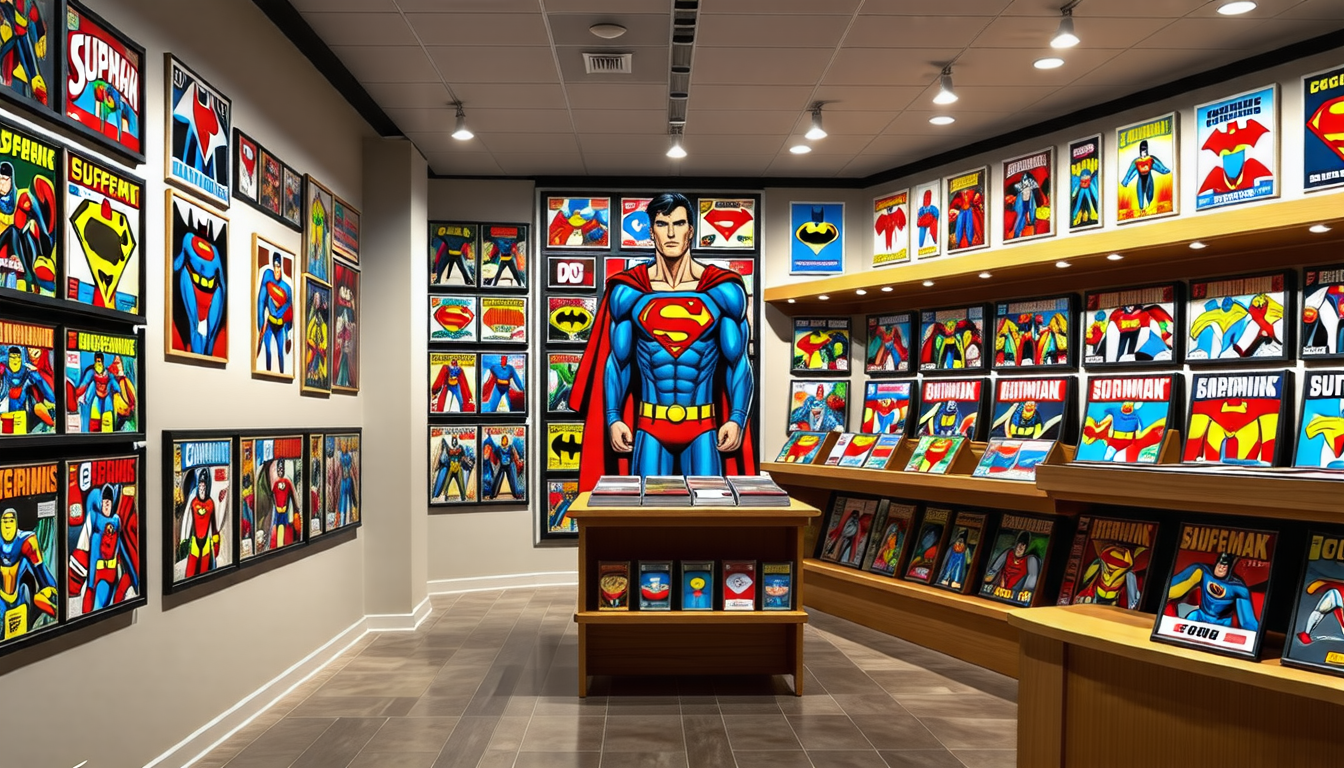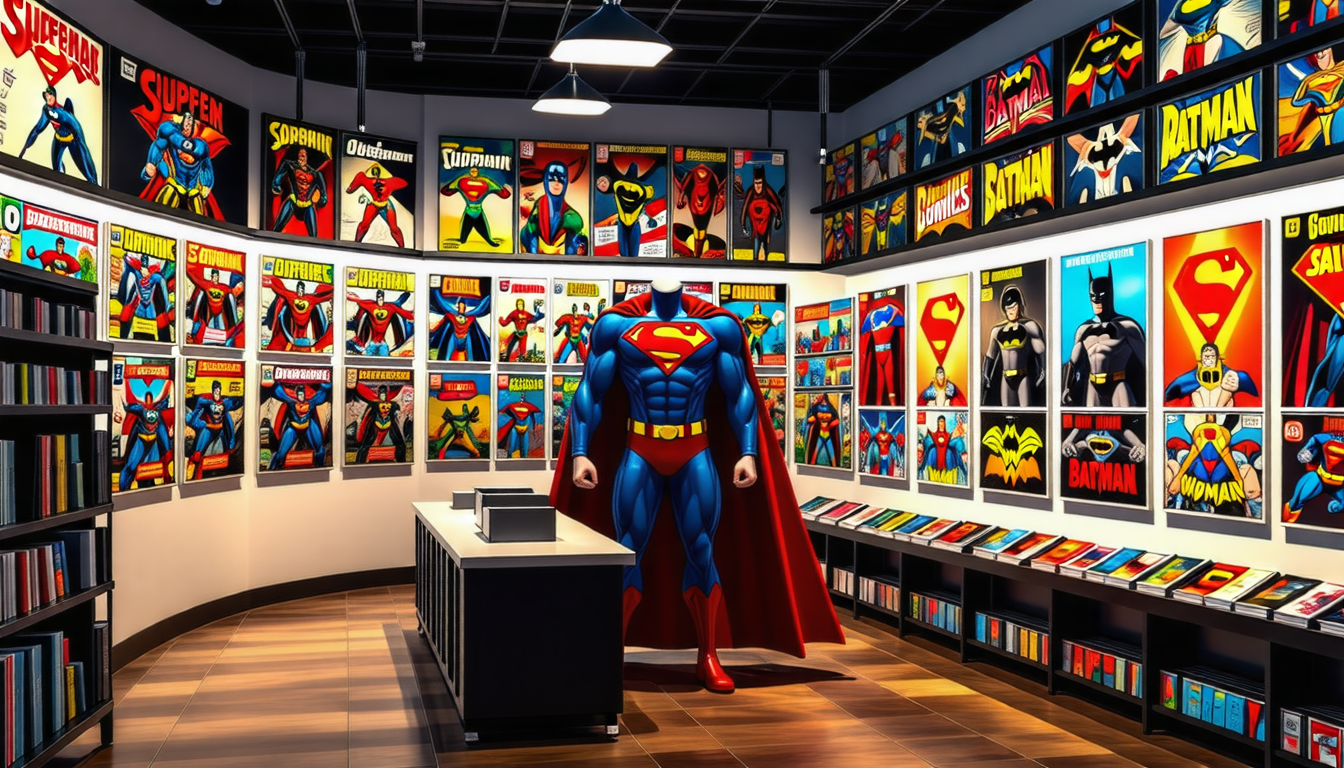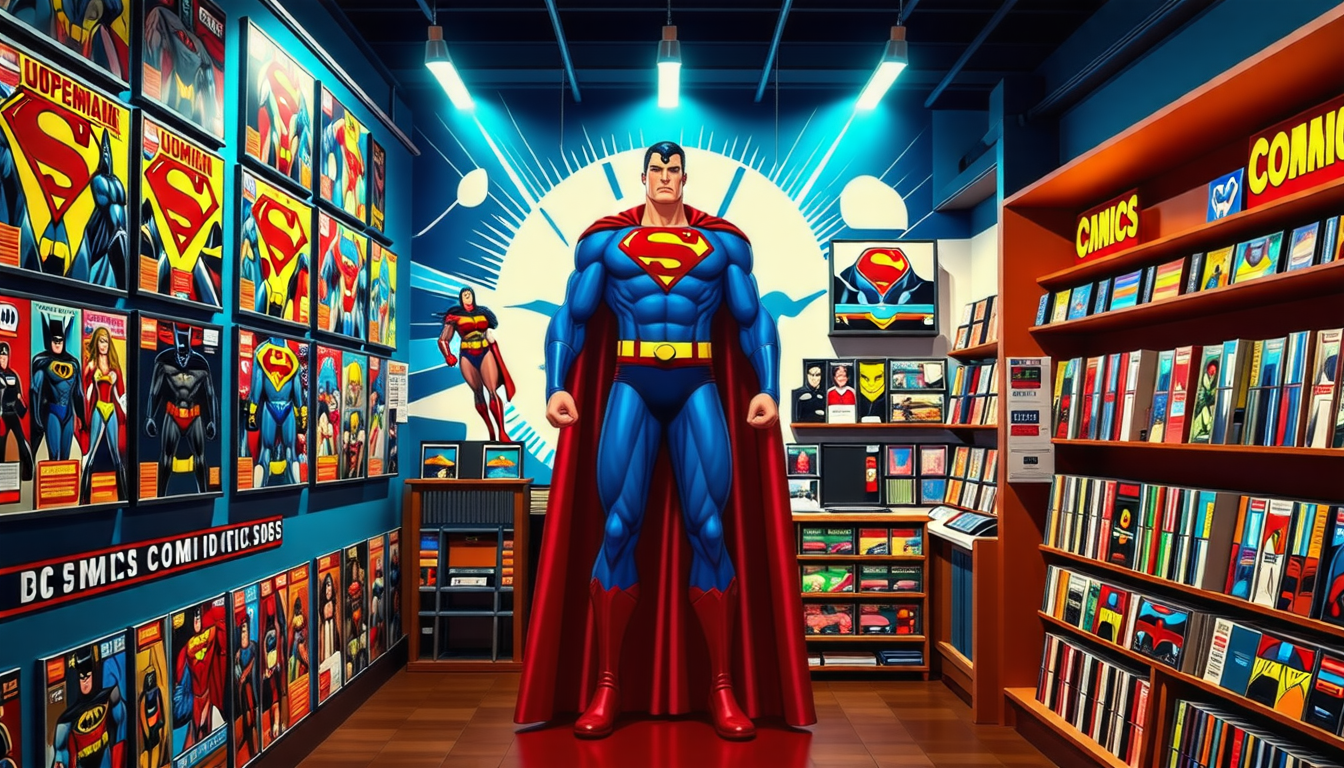|
IN BRIEF
|
Since its inception in 1934, DC Comics has drastically transformed the landscape of the comic book industry. Originally known as National Allied Publications, the company began with humble financial motivations, evolving into a powerhouse of creativity and storytelling. By 1937, it officially adopted the name Detective Comics, which would later be shortened to the iconic DC Comics we recognize today. This transformation was marked by the introduction of compelling characters and legendary superheroes, captivating audiences and establishing a rich history within pop culture. With its roots firmly planted in detective stories and adventure narratives, DC Comics has grown beyond mere entertainment, influencing generations and redefining what it means to be a hero in times of both triumph and struggle.

The story of DC Comics is not just about superheroes donning capes, but rather a journey through time that reflects changing societal values, artistic evolution, and the persistent battle of good versus evil. Founded as National Allied Publications, the company’s maturation into a cultural icon has been influenced by various factors, from its early financial beginnings to its current status as one of the major players in the comic book industry.
Finding Your Place in DC’s Rich History
For those unfamiliar with comic books, starting a journey into this world of heroes can be daunting. However, various resources and guides exist to help enthusiasts explore their interests comprehensively. If you’re curious about beginning your adventure into the realm of comic books and discovering what the DC universe offers, check out details on how to embark on this exciting path.
Additionally, there are remarkable offerings tailored for readers seeking deeper connections with comics, from casual readers to aficionados. A wealth of information is available about the multifaceted narratives that define DC, bridging the gap between genres and character arcs.
For more insights on this thriving universe, take a closer look at what DC Comics offers. Understanding the intricate origins and developments over the decades can further enhance appreciation for its characters and stories.
Whether you’re drawn to the iconic heroes, paired with their rich histories or the moral complexities embedded in their narratives, DC Comics continues to evolve and engage audiences worldwide. With a blend of legacy and innovation, its story remains an exhilarating one to follow.
For a comprehensive understanding of DC and its offerings, visit Offerings to discover various genres and titles that affirm DC’s commitment to storytelling. Additionally, by checking out About, readers can gain insight into the history and ethos that shapes the very fabric of DC Comics today.
Malcolm Wheeler-Nicholson’s Role
Before the name DC became synonymous with superheroes, Malcolm Wheeler-Nicholson played an instrumental role in forming the foundation for the comic book genre as we know it today. He was the one who is credited with creating the first comic book company in the United States, initially publishing funny papers that would later lead to the formation of the Detective Comics brand.

The history of DC Comics is vast and complex, dating back to its inception in 1934 when it was founded as National Allied Publications. This early company laid the groundwork for what would become one of the largest and oldest comic book publishers in the United States. In 1937, it rebranded to Detective Comics, Inc., leading to the eventual adoption of the acronym “DC” in 1977. The company initially started with a focus on generating revenue rather than establishing a legacy of iconic superheroes.
DC Comics truly revolutionized the comic book genre with the introduction of its first superhero, Superman, in 1938, through Action Comics #1. This historic publication not only marked the birth of the superhero genre but also set the stage for future heroes like Batman and Wonder Woman, solidifying DC’s place in pop culture. Over the decades, the company has introduced a plethora of memorable characters and expanded its universe extensively.
Further reinforcing its influence, DC Comics has adapted its stories into various media, achieving substantial box office success with films like Justice League and Wonder Woman. For a deeper dive into its extensive history, you can explore this overview or check out Comic Buying Center for additional insights.

The journey of DC Comics represents a remarkable evolution in the world of comics, beginning in 1934 with its original name, National Allied Publications. The company transformed dramatically over the decades, officially adopting the DC Comics moniker in 1977. This shift marked a significant moment, solidifying its identity rooted in the beloved Detective Comics series that paved the way for iconic characters such as Superman and Batman. From humble beginnings, fueled primarily by financial motivations, DC Comics has become a cultural powerhouse. Its fascinating history illustrates how the company not only shaped the landscape of comic books but also influenced generations, creating a legacy of storytelling that continues to resonate today.
FAQ
What year was DC Comics officially established?
R: DC Comics was officially established in 1977, although its origins trace back to the early 1930s.
Who founded DC Comics?
R: The inception of DC Comics can be credited to Malcolm Wheeler-Nicholson, who initially launched the company in 1934.
What does the ‘DC’ in DC Comics stand for?
R: The abbreviation ‘DC’ represents Detective Comics, which was the title of one of the company’s early publications and eventually became the name of the brand.
When did DC Comics first use its logo?
R: The first logo of DC Comics was seen on the covers of their titles in March 1940.
What were the early beginnings of DC Comics?
R: DC Comics began as National Allied Publications in 1934, and later changed its name to Detective Comics, Inc. in 1937 as the company transitioned into the comic book industry.


